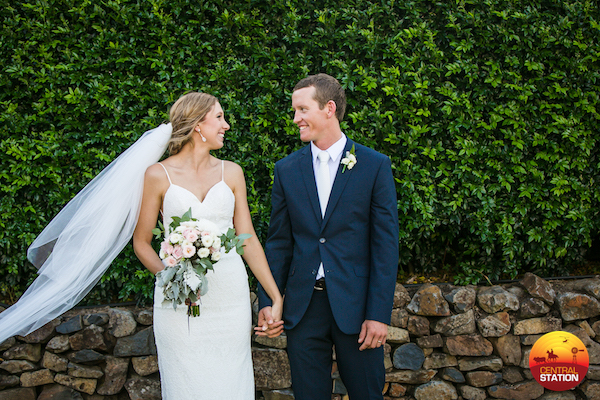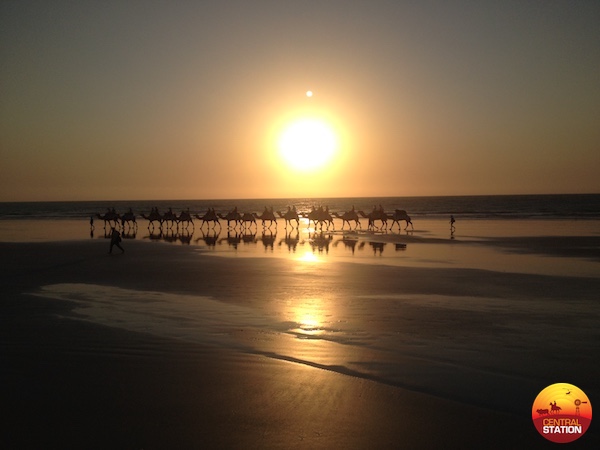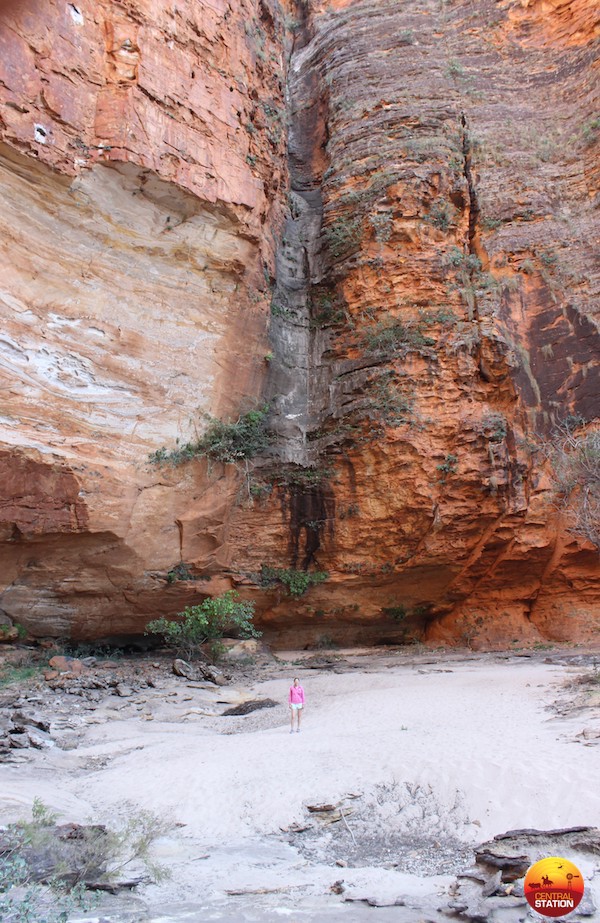Living the double life
Host: Robert Johnstone
Within the first eight months of our marriage, I spent six of those on the other side of the country. Yep, some might say my wife is extremely patient! One particular wise man told me I had ‘worked out this marriage thing pretty early on in the piece’. To be able to travel the entire country side and still come home to a warm cooked meal prepared for me, he just thought I had it made. But to be honest, I have learnt there are a few more perks to married life than just a cooked meal.
 Our wedding day March 2016.
Our wedding day March 2016.
While I’m away my wife and I are constantly asked how we do what we do – living across the country, 3000km from one another, for six months of the year. The short answer is ‘we just do’. While we would prefer to live together every day of the year (I’m sure she wrote that part), it’s all part of a bigger picture. Sure, it’s made my wife particularly less sympathetic to her girlfriends whose partners go away for a night or two here and there, and it takes us a week to sort our routine out once I come home at the end of the season, but we enjoy what we do and are very fortunate to have the opportunity.
During the season, my wife comes to visit for a week or so from time to time in order to break up the time we spend apart. This has usually fallen in perfect timing with a quiet period from spaying or pregnancy testing, and has allowed us to experience together the wonders this magnificent part of Australia has to offer. From the beaches of Cape Leveque, to the endless sights of the Gibb River Road, the Bungle Bungles to the Wolf Creek Meteor Crater, the “Great North” truly is a world unto its own.

A couple of years ago, in the warmth of September, we decided to venture to the Bungle Bungles. We left the station early, throwing in a swag ‘just in case’, filled our water bottles and picked up a round of sandwiches each at the servo on the way past. Once we arrived at the National Park, away we went, clambering down the dry river beds, over rocks and under branches, coming to the end of the walking tracks to take in the breathtaking cliffs and viewing spots, before making the return hike. By lunch time we decided that we would more than likely be camping the night, and so rationed our small food supply to one tin of baked beans each and a muesli bar for lunch. The sunset against the incredible red rock formations was beyond beautiful and before long we were rolling out our swag, enjoying our round of dry sandwiches for dinner and retiring early. We had to laugh at our rough camp, as all the other campers around us were kitted out with comfortable screened tents, BBQ’s and showers. After what I swear was the longest night in history, first light eventually peaked through the trees to the East of our elaborate camp. We again rationed the final couple of stale Vita-brits for breakfast before tackling another 13km walking trail around ‘The Domes’ side of the Bungle Bungles. Keeping a muesli bar up our sleeve for smoko as we left the National Park to make it back to Halls Creek for a decent feed at lunch time we declared we would next time be a little more prepared before setting off on our adventure – at the very least buy two rounds of sandwiches at the servo.

The many tourists that travel to the far stretches of WA and the NT each dry season, that pull up and take photos of cattle being mustered via chopper or processed in yards along one of the highways, often don’t understand the practises, the people, or the challenges behind each photograph. While a husbandry practise may appear to be causing harm to an animal, it ultimately has a longer term positive animal welfare outcome. The maintenance of animal welfare is paramount throughout the supply chain. Each chopper pilot, stockman, manager, or truck driver has a vested interest in ensuring the best possible end product is available to consumers, as the flow on from this provides an income to his or her family. It is an extremely rewarding industry to be a part of – to know you are contributing, however small, to a much larger industry that provides clean, green Australian beef to families all over the world.
